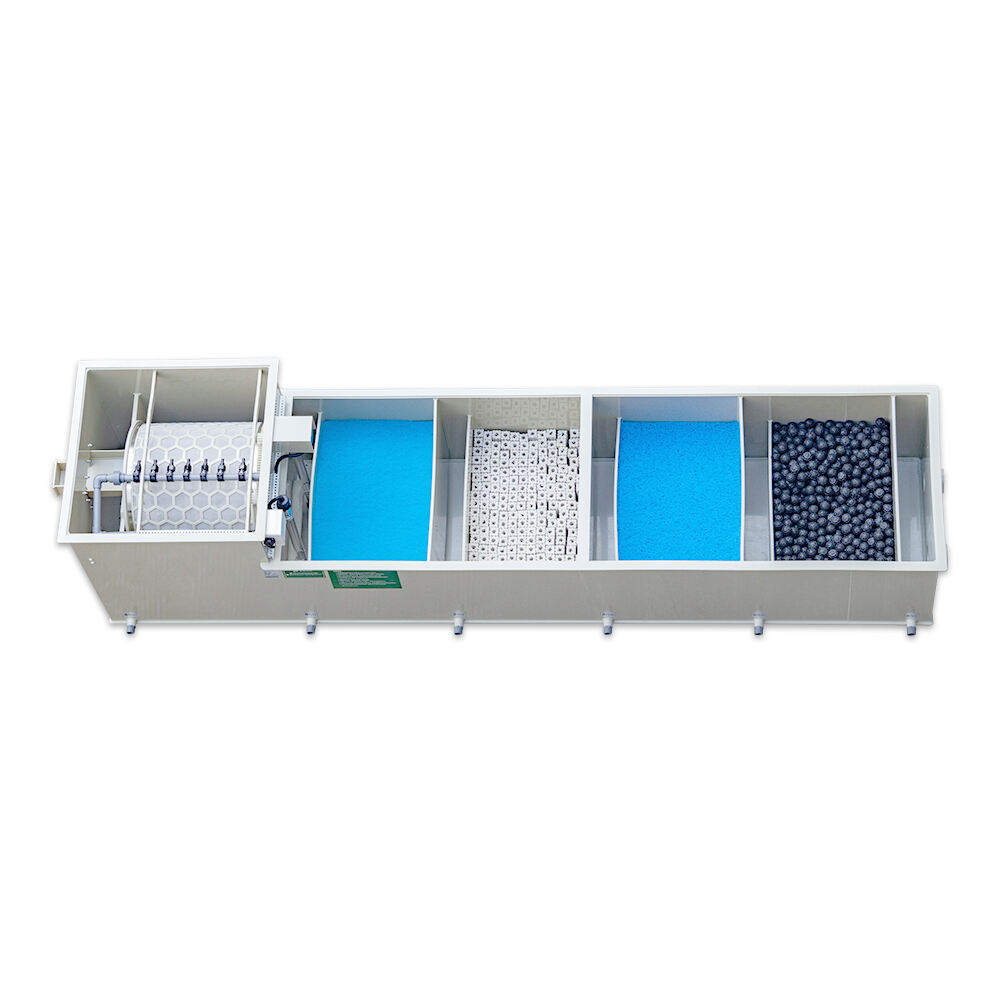fish pond filtration system
A fish pond filtration system is an essential component that maintains water quality and ensures the health of aquatic life. This sophisticated system combines mechanical, biological, and chemical filtration processes to create an optimal environment for fish and plants. The mechanical filtration removes solid waste particles, debris, and floating matter through various screens and filter media. The biological filtration supports beneficial bacteria that break down harmful ammonia and nitrites into less toxic compounds. Chemical filtration uses activated carbon and other media to remove dissolved pollutants and maintain proper water chemistry. Modern systems often incorporate UV sterilizers to control algae growth and eliminate harmful pathogens. The filtration system operates continuously, processing water through multiple stages to maintain clarity and balance. Advanced models feature programmable controls, energy-efficient pumps, and automated maintenance alerts. These systems can be scaled to accommodate ponds of various sizes, from small garden features to large commercial installations. The technology behind these systems continues to evolve, with newer models offering smart monitoring capabilities and remote operation through mobile applications.


